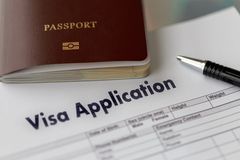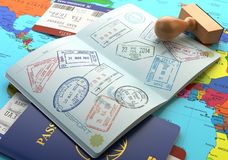The new visa waiver program for Europe’s Schengen Area will be arriving later than expected. The latest announcement from the European Union (EU) has stated that the ETIAS system will now be launched in 2025 instead of 2024. The European Travel Information and Authorisation System (ETIAS) has been in the works for several years. It
Visa policy for Switzerland
The visa policy of Switzerland is a set of regulations established for foreign citizens who intend to travel to the country. The requirements are determined depending on the traveler’s nationality.
If the traveler has a passport from one of the Schengen Area European countries, they do not need a Swiss visa, This is because Schengen citizens are granted passport-free access to Switzerland for an indefinite stay, if they enter the country using a valid ID card.
Other visa-free citizens for Switzerland are required to present a valid passport to gain entry to the country, for a maximum stay of 90 days within every 180 days. These visits may be for either tourism, business, or transit purposes.
However, from 2025, all passport-required travelers with Swiss visa exemption will be subject to the ETIAS visa waiver program. Once introduced, pre-registering for an electronic travel authorization with this online application system will become a mandatory requirement for these citizens to travel to Switzerland.
Foreign passport holders from around 150 additional countries must apply for a Schengen consular visa from a Swiss diplomatic government office to travel to the country, no matter the intended period of stay or reasons for the visit.
An embassy visa application for Switzerland should be submitted well in advance, as it may take several weeks for the travel document to be correctly processed and approved.
Switzerland does not offer visas on arrival at Swiss ports of entry, nor does it currently issue any entry bans against any foreign nationality.
Find more information about the different types of visa for Switzerland below.



